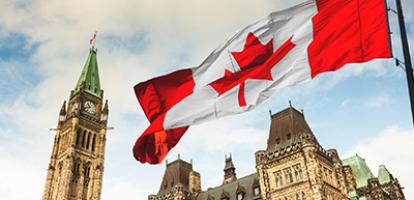Canada's move to take the U.S. to the World Trade Organization over its abuses of globally agreed rules, made public Wednesday, is a clear signal that the NAFTA exercise is up against the wall and that the U.S. is preparing to trigger the six-month withdrawal notice.
Are we entering the post-NAFTA world? It certainly looks that way.
The markets finally woke up to this on Wednesday, after sleepwalking for the past year, as bond yields and stock prices sank and the dollar took a hit on news that the Trump administration is preparing to pull the plug on the North American free-trade agreement, maybe even before the next round of negotiations slated for Montreal at the end of the month.
Markets have a way of ignoring facts, or at least taking a rosy view in complex situations of government-to-government trade policy. In this case, the somnambulism was based on misplaced optimism that trade negotiators would be able to solve the NAFTA problems, blithely ignoring the significance of President Donald Trump's repeated declarations that the agreement was the worst deal in history and constantly threatening to walk out unless the U.S. got what it wanted in the renegotiating process.
Canada's move to take the U.S. to the World Trade Organization over its abuses of globally agreed rules, made public Wednesday, is a clear signal that the NAFTA exercise is up against the wall and that the U.S. is preparing to trigger the six-month withdrawal notice. It's an indication that Plan B is now operative, as The Globe's Barrie McKenna rightly observed.
Taking the U.S. to the WTO diverts the matter from NAFTA turf, where the Americans hold most of the cards, and moves it to an international forum where all parties are equal and where judgments over whether the rules are being followed will be determined by a neutral panel.
It's what the multilateral system was designed to do – level the playing field, removing the case from a stacked negotiating forum where a powerful bully dominates and relying on the WTO's judicial body to dispassionately review one member's complaint against another.
Canada has outlined a whole litany of U.S. "nullification and impairment" measures affecting Canadian trade extending over decades, including the U.S. refusal to fully implement WTO panel rulings, saying that those decisions only cover past importations and only those particular products, leaving the impugned measure in force for future cases.
By bringing its WTO case now, the Trudeau government recognizes that NAFTA can't be repaired and that U.S. trade actions will only escalate with full encouragement under Mr. Trump's protectionist America First agenda. Canada is showing that it has offensive as well as defensive strategies.
There are risks here, and the first will be the inevitable souring of our bilateral trade relations. As Andrei Sulzenko has written in this space, trade remedies are viewed by Americans as the commercial equivalent of the constitutional right to bear arms, meaning there will a highly charged and aggressive counterattack by the Trump administration.
This has already begun, with Robert Lighthizer, the U.S. Trade Representative, slamming Canada's WTO request as a "broad and ill-advised attack on the U.S. trade remedies system."
The Trudeau team needs to be steely eyed in weathering these assaults. Whatever vitriol might light up Twitter accounts, the Canadian complaint is totally within WTO rules and the right of any member to seek redress where another member nullifies or impairs its benefits under the WTO Agreement.
This will be Canada's biggest ever WTO case, an epic battle taking years to get resolved. In the meantime, Canadian business needs to adjust to a likely post-NAFTA world. Even the earlier 1988 bilateral Canada-U.S. free-trade agreement (FTA), which remains in force in the background, could be in Mr. Trump's crosshairs. Terminating U.S. participation in these treaties will mean ending current and future binational panel reviews, including softwood lumber, all which will be diverted to the U.S. domestic court system.
On the less negative side, a world without a Canada-U.S. trade agreement won't stop ongoing trade or business between our two countries. Japan, the EU, China and indeed most of the world do business with the U.S. without bilateral trade agreements. There will be an adjustment period but in the end Canadian trade will recover.
The longer-term spillover impact on the bilateral relationship in a post-NAFTA world is difficult to assess. Luckily, that relationship is robust enough to weather strains and irritants and has shown itself to be surprisingly resilient in spite of political and economic disputes in particular areas, some of which have been pretty contentious.
The problem until all of this gels will be continuing market uncertainty, compounded by the battle shaping up in Washington over whether Mr. Trump can legally withdraw from NAFTA without congressional approval. The debate over the role of Congress will be further complicated by the impending U.S. midterm elections as well as constitutional litigation over the respective roles of the White House and Congress regarding abrogation of trade agreements.
So, while there's a lot of drama surrounding Canada's WTO case and all of its strategic implications, the centrepiece in all of this is NAFTA and the critical events unfolding over the next few weeks. We're in for uncertain times in a post-NAFTA world.
Lawrence Herman of Herman & Associates is a former Canadian diplomat who practices international trade law. He is a senior fellow of the C.D. Howe Institute.
Published in the Globe and Mail.





